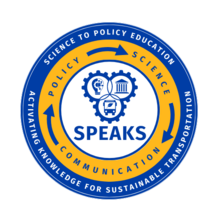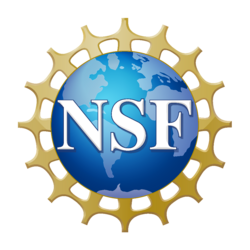-
2023 Cohort
Osten Anderson, Electrical and Computer Engineering
Evan Brook, Political Science
Heaven Denham, Environmental Sciences
Jacqueline Garrido Escobar, Electrical and Computer Engineering
Yejia Liao, Electrical and Computer Engineering
Haishan Liu, Electrical and Computer Engineering
Janice Nguyen, Electrical and Computer Engineering
Lynne Xu, Environmental Sciences
Ruili Yao, Electrical and Computer Engineering -
2024 Cohort
Hovanness Dingilian, Chemical and Environmental Engineering
Azure Fisher, Environmental Sciences
Kathleen Fong, Chemical and Environmental Engineering
Troy Hurren, Chemical and Environmental Engineering
Aaron Luo, Electrical and Computer Engineering
Pamodya Peiris, Electrical and Computer Engineering
Abhinav Vyas, Electrical and Computer Engineering
Justin Yue, Computer Science and Engineering -
2025 Cohort
Nathaniel Barton, Political Science
Elizabeth DeFrance, Chemical and Environmental Engineering
Troy Hussain, Electrical and Computer Engineering
Etienne Ortega Flores, Political Science
Aubrey Qian, Chemical and Environmental Engineering
Mehak Saleem, Electrical and Computer Engineering
Will Snyder, Electrical and Computer Engineering
Ashley Trevino, Chemical and Environmental Engineering
-
NSF Acknowledgement Guidelines
It is essential that presentations, papers, journal articles, dissertations, posters, and other products that emerge from SPEAKS acknowledge NSF support. This acknowledgement must be included whether or not you are currently supported by SPEAKS funding.
How to acknowledge NSF
- In publications, include either version of the following text in your Acknowledgements section:
Minimalist version - "This material is based upon work supported by the National Science Foundation under Grant DGE-2152258."
Longer version -“This material is based upon work supported by the SPEAKS program at the University of California, Riverside which is supported by the National Science Foundation under Grant DGE-2152258.” - In presentations and posters, list the grant number on your Acknowledgments slide or at the bottom of your poster: NSF #2152258. Along with the award number, you are also encouraged to use the NSF logo in presentations and posters to acknowledge their support.
- Occasionally, guidelines for a conference or publication may specify that you list the PI. If so, add “(M. Barth, PI)”.
- If you write about NRT-supported research in a non-scientific publication (e.g. a blog or newspaper article), you should acknowledge NSF support (NSF award 2152258) also include the following disclaimer: "Any opinions, findings, and conclusions or recommendations expressed in this material are those of the author(s) and do not necessarily reflect the views of the National Science Foundation."
When to Acknowledge NSF Support
Support can be relatively direct or indirect. Either way, you should acknowledge the NSF.
- Direct support
- Includes a trainee during the year they are funded by SPEAKS
- Relates to a collaboration fostered in any way by SPEAKS
- Indirect support
- Involves SPEAKS trainee(s) or faculty in any way, and relates to sustainable
transportation and/or science to policy. - Involves trainees at any point after acceptance to SPEAKS program - no matter their
funding status - and relates to sustainable transportation/science to policy. - The work benefited from the community/context SPEAKS provides (e.g., inspired or
facilitated collaboration).
- Involves SPEAKS trainee(s) or faculty in any way, and relates to sustainable
- In publications, include either version of the following text in your Acknowledgements section:
-
SPEAKS Travel Funding Requests
SPEAKS Travel Support Funding Policy
* SPEAKS fellowships and travel funding are subject to the continuation of this award by the National Science Foundation.
The SPEAKS program is pleased to offer travel support for SPEAKS-related activities. Any SPEAKS student is eligible to request travel support funds. SPEAKS travel funds may be used to support travel to conduct SPEAKS-related research, attend SPEAKS-related meetings and conferences, deliver presentations of SPEAKS-related research, and travel for other SPEAKS-related activities. SPEAKS travel funds are limited, therefore students are advised to obtain funding from other sources first, such as GSA, Graduate Division, Department, PI/Advisor, and then apply for SPEAKS travel support.
SPEAKS travel funds may be used for conference registration, transportation, and lodging only. SPEAKS travel funds may not be used for food, beverages, alcohol, or incidentals such as in-room or in-flight entertainment. You may travel with others, however SPEAKS travel funds are to be used solely for and by the SPEAKS student and no other person. UCOP and UCR Travel Policies will apply at all times.
It is recommended that SPEAKS students work with the CE-CERT Travel Coordinator to make travel arrangements. If making your own travel arrangements, payment will be reimbursed after travel has been completed upon submission of appropriate original receipts from the traveler. All receipts must bear the name of the traveler.
Because these are federal funds, all air transportation must use a U.S.-flag air carrier. If traveling internationally, in accordance with the Fly America Act (49 USC 40118), any air transportation to, from, between, or within a country other than the U.S. of persons or property, the expense of which will be assisted by SPEAKS funding, must be performed by or under a code-sharing arrangement with a U.S.-flag air carrier if service provided by such a carrier is available. Tickets (or documentation for electronic tickets) must identify the U.S. flag air carrier’s designator code and flight number.
How to request Travel Funds
Complete the SPEAKS Travel Support Request Form. Email the completed form and all requested information with the subject line “SPEAKS Travel Funding Request” to Melissa Jaunal, SPEAKS Program Coordinator at certtraining@ucr.edu . For full consideration of your request, submit at least one month prior to the start date of your intended travel.

